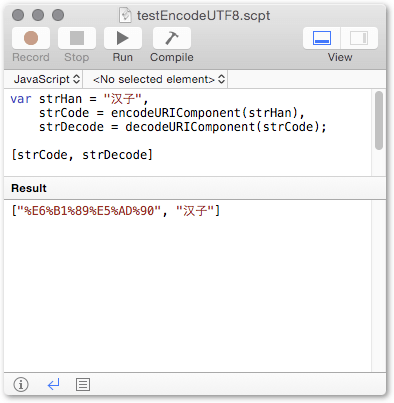( Apologies there for the reckless misuse of German and Greek etc characters )
For refce, the .systemAttribute() version, which works fine within its Anglo-Saxon limits, is:
#!/bin/bash
osascript -l JavaScript <<JXA_END 2>/dev/null
(function () {
var a = Application.currentApplication(),
sa = (a.includeStandardAdditions = true, a);
return encodeURIComponent(
sa.systemAttribute('KMPARAM_Text_to_encode')
);
})();
JXA_END
FWIW, a purely JavaScript version, outside the Bash context, works fine:

var strHan = "汉子",
strCode = encodeURIComponent(strHan),
strDecode = decodeURIComponent(strCode);
[strCode, strDecode]
["%E6%B1%89%E5%AD%90", "汉子"]